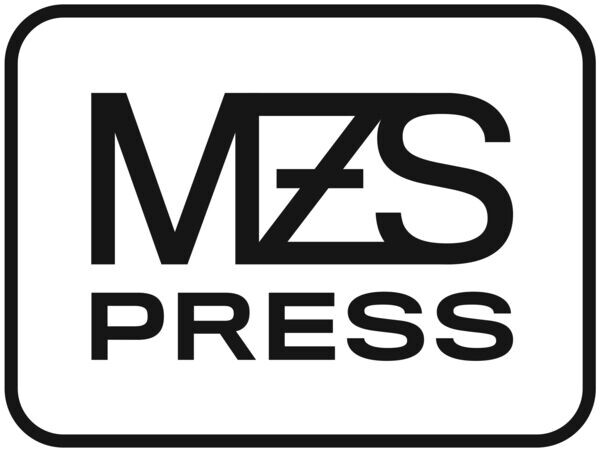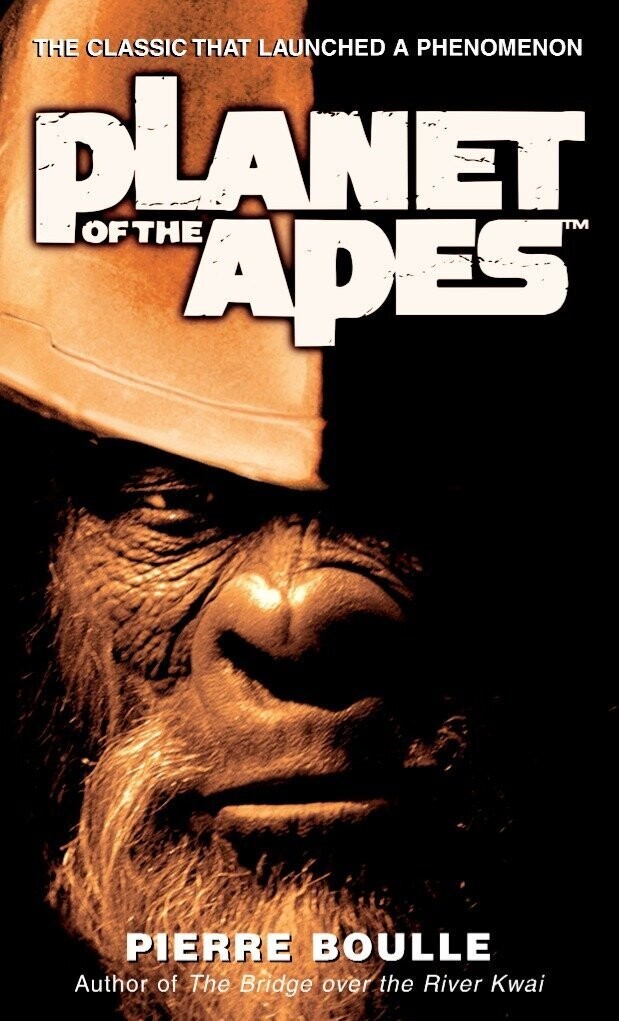

The Arts Bookstore of the Internet
Created by Matt Zoller Seitz
Directed by Judith Carter
“If you only read the books that everyone else is reading, you can only think what everyone else is thinking.”
Haruki Murakami
Photo by Justin Campbell on Unsplash
Planet of the Apes (Paperback, NEW)
The original novel that inspired the films!
First published more than fifty years ago, Pierre Boulle’s chilling novel launched one of the greatest science fiction sagas in motion picture history.
In the not-too-distant future, three astronauts land on what appears to be a planet just like Earth, with lush forests, a temperate climate, and breathable air. But while it appears to be a paradise, nothing is what it seems.
They soon discover the terrifying truth: On this world humans are savage beasts, and apes rule as their civilized masters. In an ironic novel of nonstop action and breathless intrigue, one man struggles to unlock the secret of a terrifying civilization, all the while wondering: Will he become the savior of the human race, or the final witness to its damnation? In a shocking climax that rivals that of the original movie, Boulle delivers the answer in a masterpiece of adventure, satire, and suspense.
REVIEW
Boulle's classic 1963 novel differs in several ways from the 1968 movie and its various spinoffs. While the bare-bones story is familiar—astronaut travels to a planet populated by intelligent apes, is captured, fights to prove that he is a thinking creature—the novel is richer in detail and parallels to human culture. Boulle's apes live in cities, wear human-style clothing, drive automobiles. Technologically, they are in pre-spaceflight mode (although they have sent vessels into orbit, with humans as pilots—just like we did with monkeys, back in the 1950s and '60s). As in the '68 movie, Boulle's humans are essentially wild animals, unclothed and uncivilized—which is why our hero, French journalist Ulysse Mérou, poses such a problem for his captors: intelligent humans, capable of speech and advanced thought, are not supposed to exist. Many familiar ape characters are here—Zira, Cornelius, Nova, Zaius—but they are subtly different: for example Zaius, the orangutan scientist, is less buffoonish, and more menacing, than you might be expecting. The novel is paced more slowly than the movie, too: the film is a sci-fi movie with philosophical undertones, but the novel is more like a fable, an overt morality tale posing as science fiction, weighted more toward dialogue than action. It should be considered essential reading not just for fans of the movie, but for all science-fiction readers. --Booklist
- ASIN : 0345447980
- Publisher : Del Rey (January 1, 2001)
- Language : English
- Mass Market Paperback : 272 pages
- ISBN-10 : 9780345447982
- ISBN-13 : 978-0345447982
- Item Weight (inc packaging) : 1 lb
- Dimensions : 4.13 x 0.72 x 6.86 inches
About Our Store
MZS.Press is the online arts bookstore founded by author, critic, and filmmaker Matt Zoller Seitz and Directed by Judith Carter. It offers new, used, signed, collectible, and rare books on film, TV, music, photography, and the visual arts. The store was launched in 2019 on a different platform and has expanded to incorporate arts books published by MZSPress's private imprint: titles currently include Seitz's The Deadwood Bible: A Lie Agreed Upon and Dreams of Deadwood, about the HBO Western, and Walter Chaw's A Walter Hill Film.
Our deepest wish is to promote, encourage, and distribute work by small presses, academic presses, and individuals. Extraordinary work tends to get swallowed up on giant platforms like Amazon and Barnes & Noble. The titles featured here are personally selected by a group of curators and advisors, including Seitz and an array of critics, artists, journalists, educators, publishers, and arts mavens who are known for their ability to suss out what Seitz's jazz musician dad liked to call "the good sh*t."
In Honor of the greatest auteur of our time, Judith is using one of her favorite quotes by him.
"Every day, once a day, give yourself a present"
David Lynch (January 20, 1946-January 15, 2025)

About the Partners

Matt Zoller Seitz
Critic, Author, Filmmaker, MZS Press Creator
Matt Zoller Seitz is the Editor at Large and film critic of RogerEbert.com; Features Writer for New York Magazine and Vulture.com, Contributing Writer for D Magazine and Texas Highways as well as finalist for the Pulitzer Prize in criticism. His writing on film and TV has appeared in Sight and Sound, The New York Times, Salon.com, The New Republic and Rolling Stone. Seitz is the founder and original editor of the influential film blog The House Next Door, now a part of Slant Magazine.
Seitz has written, narrated, edited or produced over a hundred hours’ worth of video essays about cinema history and style for The Museum of the Moving Image, Salon.com and Vulture, among other outlets such as Texas Highways and AARP. His five-part 2009 video essay Wes Anderson: The Substance of Style was spun off into the hardcover book The Wes Anderson Collection. This book and its follow-up, The Wes Anderson Collection: Grand Budapest Hotel were New York Times bestsellers.
Other Seitz books include the New York Times bestsellers The Sopranos Sessions and Mad Men Carousel; TV (The Book), The Deadwood Bible: A Lie Agreed Upon, The Wes Anderson Collection: The French Dispatch and the new The Wes Anderson Collection: Asteroid City. He is also an interviewer, moderator, and film programmer who has curated and hosted film and TV presentations for the Museum of the Moving Image, IFC Center, San Francisco's Roxie Cinema, and other venues. In October 2024 he brought the legendary filmmaker Oliver Stone back to Dallas for a historic return to the city and the Texas Theatre, considered the biggest film event of Dallas in 2024 by Dallas Observer!
Judith Carter was in the Upscale and Luxury Hospitality Industry for most of her life. In 2004 she had a beautiful baby boy with Special Needs and put the pause on her career until 2017 to dedicate herself to him and then others, assisting and volunteering as a legal advocate ensuring the best medical care, evaluations and educations for Special Needs children and their families.
Matt and Judith were family friends for over 20 years. She was there with her family in support when his wife Jen passed away suddenly in 2006. Then just 6 weeks later while Matt was in Dallas; he and his Father, Dave, and Step-Mother, Genie, were there as support, when Judith was alone and her son received the first of many diagnoses that changed the trajectory of their lives. So it made sense in the turbulent year of 2020, Matt asked Judith to take over running the online store that has become MZS.press. The rest as they say is, "Their"-story.
